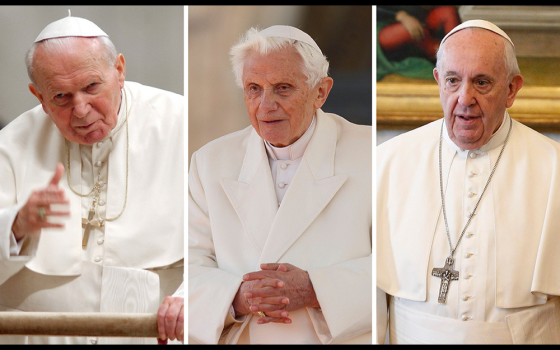The trial of the alleged assassin of a famed Chilean folksinger unfolding in a Florida courtroom is shedding light on the darkest days of a bloody U.S.-backed coup that brought dictator Augusto Pinochet to power on Sept. 11, 1973.
Former Chilean army lieutenant Pedro Pablo Barrientos Nuñez, 67, went on trial June 13 in a U.S. district court in Orlando. He’s accused in a lawsuit — filed under the Torture Victim Protection Act — of torturing and assassinating songwriter and poet Victor Jara.
Barrientos, who denies the charges, has been living for years in Deltona, Fla., having fled Chile in 1989 after Pinochet fell from power. A Chilean court indicted him for Jara’s murder in 2012, but its request to the U.S. government to extradite him to Chile for criminal prosecution has never been acted on.
Jara was killed Sept. 15, 1973, just days after Pinochet overthrew Chile’s democratically elected president, Salvador Allende. Jara’s hands and wrist were broken, and he was shot 44 times.
The 40-year-old songwriter and political activist was one of nearly 3,200 people killed during Pinochet’s reign of terror, including 1,000 who were disappeared, but never found, according to the Chilean Truth and Justice Commission. Another 28,000 were tortured.
Jara is perhaps the best known. His protest songs and his celebration of indigenous cultures made him an icon among Chile’s poor campesinos, and musicians around the world have cited his influence, including Bob Dylan, Bruce Springsteen and U2.
However, his lyrics calling for social and economic justice only inflamed the military dictatorship, as did his unabashed support for Allende, a medical doctor and the first Socialist ever elected as a president of a Latin American country.
Jara had campaigned for Allende, giving free concerts at his rallies. The singer’s immense popularity had been a tremendous boost to Allende whose election had incensed the Nixon administration. Allende’s efforts to nationalize industries further infuriated not only Nixon, but also U.S.-owned copper companies in Chile.
To undercut Allende’s government, Nixon issued his infamous order to the CIA to make Chile’s “economy scream.” The real U.S. goal, however, was contained in a secret cable, now declassified, in which CIA deputy director of plans - Thomas Karamessines – relayed a directive from National Security Advisor Henry Kissinger that it was “firm and continuing policy that Allende be overthrown by a coup,” adding that it was “imperative” that CIA actions be done “clandestinely” so the “American hand be well hidden.”
The U.S. military also played a role in the coup, in part by training hundreds of Chilean officers at the U.S. Army’s School of the Americas, now known as the Western Hemisphere Institute for Security Cooperation. After his rise to power, Pinochet gave the school a sword and a letter of thanks acknowledging his debt; both items hung for years in the commandant’s office at the school until it came under fire for using instruction manuals advocating torture and assassination.
Barrientos – and three other Chilean officers indicted by the Chilean court for Jara’s murder – are all graduates of the school.
Barrientos is accused of firing the two fatal shots into Jara’s head, before ordering five military conscripts under his command to repeatedly shoot his corpse, according to the torture suit filed on behalf of Jara’s family by the San Francisco-based Center for Justice and Accountability, an international human rights firm.
Joan Turner Jara, the singer’s 88-year-old widow, told the Orlando jury that on the day of the coup, the last day she saw him alive, Jara was scheduled to sing at the State Technical University, where Allende was going to announce a plebiscite and where Jara was an instructor.
That morning, the couple sat in their home, listening to the radio when the coup started, she said, and radio stations stopped regular broadcasting to play military music.
Jara left for the university, but never came home that evening, she said. Television announced the next morning that his “university had been taken over by the military and a large number of terrorists had been arrested... I panicked because Victor had been threatened many times because of the songs he sang.”
Pinochet, who had quickly set about abolishing congress, unions and opposition political parties, also directed the army to systematically arrest intellectuals, artists, university professors and students suspected of supporting Allende.
The military had surrounded the State Technical University and taken Jara and hundreds of others prisoner. They were taken to Estadio Chile in Santiago, one of the military's first mass detention centers.
That was where Barrientos, a commander in the Tejas Verdes Regiment, was overseeing the mass detention of potential dissenters, thus becoming a collaborator in establishing a system, the suit says, "of imprisonment, torture, and execution of suspected leftists at the Stadium."
Jara was taken to an underground locker room where he was tortured and executed three days later. His mutilated body was dumped outside the stadium, and later taken to the morgue in a truck filled with corpses. A man who recognized Jara summoned his wife.
In her testimony, she gave chilling details of her trip to the morgue where “there were heaps of bodies of young men, old men, body after body after body…Suddenly I saw Victor’s body... One eye was bloody and bruised. His hands were hanging in a strange angle from his wrists. Covered in blood. He had about -- I think I saw 20 large bullet holes in his abdomen. And an enormous wound in the center of his body.”
Chilean attorney Dennis Navia Perez, who had worked at the university where Jara taught, testified that he was arrested and taken with Jara to the stadium. Once the military recognized Jara, he said, they called him a communist, struck him with rifles and pistols, and broke his hands and wrists so he would “never be able to play the guitar again.”
It was a former soldier under Barrientos’ command who testified that Barrientos shot Jara twice in the head.
Jose Santiago Navarette Barra, a conscript under Barrientos, testified via videotape that Barrientos often boasted about shooting Jara, using his Luger pistol.
Navarette Barra also testified that Barrientos tortured a soldier who was heard singing one of Jara’s songs. The solider ended up dead, he said, supposedly of a heart attack.
Chilean journalist Monica Gonzalez told the jury that listening to Jara’s protest songs was dangerous because he gave a voice to the poor and was the pillar of the New Song Movement with his lyrics advocating change and social equality.
The military conducted raids and publicly burned New Song Movement records and books, she said. His lyrics “were better than many speeches,” she testified.
In his opening statement, Barrientos’ attorney, Luis Calderon, claimed that Barrientos was never stationed at the stadium. He also stated that there was a lot of chaos after the coup and that “if you didn’t follow an order, you would be shot…Those were your options. Follow or die. …Mr. Barrientos followed his orders. But none of those orders ever included anything to do with the [stadium].”
Barrientos, he said, is just a simple man trying “to live the American dream.”
But CJA lawyer and Executive Director C. Dixon Osburn stated that Barrientos lied about his role in the military on immigration papers to get into the United States.
The lawsuit seeks unspecified damages, but Osburn said that Joan Jara is mostly seeking accountability and to shine a light on her husband’s death and on those of so many Chileans whose bodies were never found.
[Linda Cooper and James Hodge are the authors of Disturbing the Peace: The Story of Father Roy Bourgeois and the Movement to Close the School of the Americas.]

